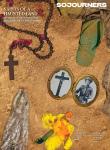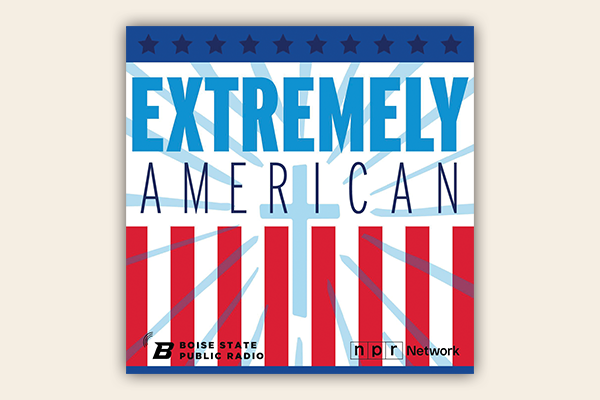A NETWORK OF outspoken Christian nationalists is growing in popularity. They are not yet mainstream, but their drive for power is irrefutable. In Onward Christian Soldiers, the second season of the NPR podcast Extremely American, hosts Heath Druzin and James Dawson trace the rise of this Christian nationalist movement as manifested in the ministry of Doug Wilson, the reactionary, fundamentalist pastor of Christ Church in Moscow, Idaho.
Wilson and his followers are forthright about their goal. “Our mission at Christ Church is summed up by the phrase, ‘all of Christ for all of life,’” according to the mission page on the church’s website. “Under the grace of God, this means that our desire is to make Moscow a Christian town.”
Across eight episodes, listeners of Extremely American witness Wilson’s emergence: The son of a Christian bookstore owner, Wilson takes on the mantle of preacher, excels in his philosophy classes, becomes an intuitive builder of institutions, and uses these skills to advance a crude political vision of Christian domination.
In Wilson’s political fantasy, only the heads of households — i.e., typically men — should be able to vote. Patriarchy is an essential part of the Christian nationalist movement and one of the main focuses of the show. In the episode “Wolves Among the Flock,” Emilie Paige Dye courageously shares that she was sexually abused by Jim Nance, an elder of Christ Church and teacher at the private school founded by Wilson. Through her story and others, Extremely American tries to reckon with the terrible vulnerability created by Christian nationalism’s patriarchal commitments.
The hosts are not unaffected by the nationalism they’re trying to understand. Druzin is told by Gabriel Wrench, a nationalist and host of the podcast CrossPolitic, that Jews — or anybody with any religious commitments that aren’t firmly Christian — shouldn’t be allowed to vote. Druzin responds, “So I’ll tell you straight up, as a Jewish American, I hear that — that I can’t run for office, other non-Christians can’t — and I have to admit, it’s a little terrifying to me.” Wrench’s response is unflinching: “Yeah, because your worldview’s not good for society.”
The movement is not only unapologetic in asserting male, Christian supremacy, it is also crudely capitalist. Dawson aptly calls this iteration of Christian nationalism a “Christian industrial complex.” According to the hosts, “Nearly 20 percent of buildings in downtown Moscow are owned by Christ Church, its affiliates, or known members.” Schools using Wilson’s curriculum model have popped up around the country, as has a billboard campaign advertising his book, Mere Christendom.
Druzin and Dawson state that Christian nationalism is not new. But I wish they had done a bit more to trace its genealogy, not only into the 1930s, but into the age of “discovery” and colonialism. The first European settlers in North America were Christians, and the colonies established by them depended largely upon the disenfranchisement and exclusion of Native Americans and the enslavement of African Americans. Christian nationalism, and its patriarchal, capitalist, and racist underpinnings, have always been present. Of course, that doesn’t mean we shouldn’t work to challenge Christian nationalism in its current forms. Extremely American will encourage listeners to think seriously about the role of Christianity in the creation of a repressive politics.

Got something to say about what you're reading? We value your feedback!







